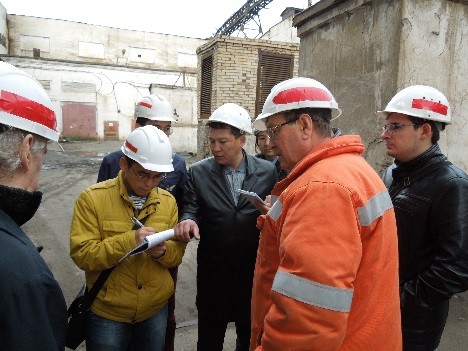
March 2015—The Government of Kazakhstan is committed to decreasing its energy intensity and contribution to climate change.
Under a new energy efficiency law passed in 2012, energy-intensive businesses and municipal buildings are required to reduce their energy consumption through energy-saving measures monitored by regular mandatory energy audits. Such monitoring requires the services of experienced energy auditors. Many companies have so far been unable to comply with these requirements, not because of a lack of commitment, but because of the insufficient supply of experienced energy auditors that can carry out this work.
USAID’s Kazakhstan Climate Change Mitigation Program is working to help the country achieve long-term sustainable reductions in energy intensity and greenhouse gas emissions. The program, which runs from 2013 to 2016, provides specialized training to help build the next generation of climate and energy professionals in Kazakhstan.
In partnership with Karaganda State Technical University and Innovative Eurasian University (Pavlodar), licensed energy auditing training centers, USAID established two industrial assessment centers in November 2014 that provide on-the-job training to local energy auditors, university faculty and engineering students. The centers organize teams of students and faculty that, led by experienced auditors, provide energy audits for regulated enterprises.
Trainees gain new skills in energy auditing using national and international standards, identifying and calculating energy losses, and preparing recommendations for energy-saving measures to manage energy use over time.
“On-the-job trainings help Kazakhstani professionals obtain practical skills in energy auditing and identifying energy efficiency improvements,” said Galiya Tatkeeva, dean of the energy and telecommunications faculty at Karaganda State Technical University.
In just the first few months of operation, the centers have organized eight express energy audits and trained 49 local energy practitioners who have identified annual energy savings of $2.4 million (7,825.8 tons of coal equivalent). Thanks to USAID support, these centers will continue to identify energy savings while providing practical trainings for local energy professionals and helping businesses to both be more competitive and to comply with national regulations.
LINKS
Follow @USAIDCtrAsia, on Facebook, on Flickr, on YouTube







Comment
Make a general inquiry or suggest an improvement.